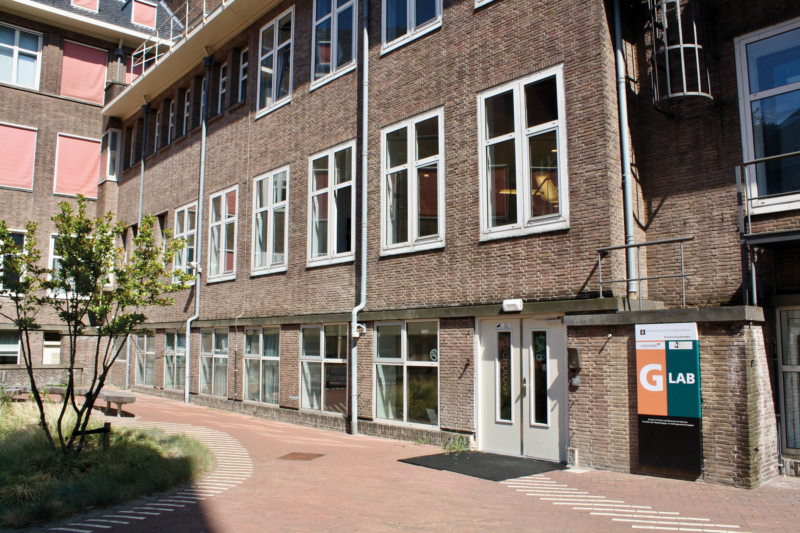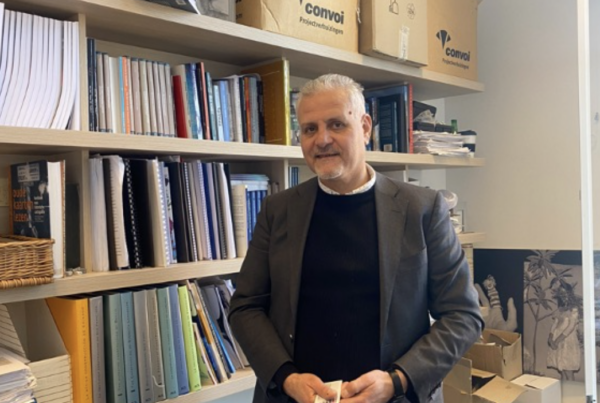

Since the study Psychology has been internationalized at the UvA, the number of students that didn’t join university directly after high school but later on in their life, has risen. Going to university a bit later probably has advantages as well as disadvantages. On the one hand, one has more life experience and has had enough time to consider what he or she really wants to do. After having worked full-time for a while, some people appreciate the opportunity to study (again) more than they would have done earlier in life. On the other hand, being surrounded by a lot of recent high school graduates isn’t always easy. In Western society, professional success and having a career is considered immensely important. Some younger students and professors might have prejudices towards older students who resume their university career. They might consider it a failure to pursue a university career at a time when others are already planning on having a stable job, house and family. Being confronted with different frameworks of reference can be difficult in day to day student life.
As university and academic greenhouse, where different and diverse opinions should contribute to the academic discourse, I would expect the University of Amsterdam to provide facilities to support older students and students with families: people of different backgrounds should be able to study. However, on the UvA website I can’t find a page concerning the topic. Even though the student services proudly announce to offer ‘several student support services and guidance, before you start studying, during your studies and sometimes after graduating as well,’ they have nothing to offer for older students.
A fellow student in his thirties tells me about his experience: ‘They offered the possibility to join a tutorial group for students over 21 in order to get the somewhat older students in touch with each other, but that’s it.’ I wonder, if older students could use more support, what kind of support they would expect the university to offer. ‘As you are older, you expect less,’ my friend says. ‘The average student in my year is aged between eighteen and 24, which is also the time when you’re supposed to go to university. If you are an adult, you should be treated as one and not need extra help of the university. I think most older students wouldn’t make use of it anyways, now that I think about it.’
His answer makes me think: My friend seems to have a fair point in saying that as an adult one should be able to function in university independently. But when does academic adulthood start? I can imagine that certain responsibilities and duties automatically come up as one gets older. Study financing is limited, and it becomes inevitable to work next to studying. With frequently changing timetables, maintaining a stable working life can be an enormous challenge. More stable timetables and video lectures could therefore be an important step to support older students during their studies. Additionally, ‘success stories’ of not only the normative, young student’s student career but also alternative student careers should be shared on the UvA website as inspiration. The more different the plants are that grow in the greenhouse, the more interesting, diverse and inspiring the academic discourse will be!

Since the study Psychology has been internationalized at the UvA, the number of students that didn’t join university directly after high school but later on in their life, has risen. Going to university a bit later probably has advantages as well as disadvantages. On the one hand, one has more life experience and has had enough time to consider what he or she really wants to do. After having worked full-time for a while, some people appreciate the opportunity to study (again) more than they would have done earlier in life. On the other hand, being surrounded by a lot of recent high school graduates isn’t always easy. In Western society, professional success and having a career is considered immensely important. Some younger students and professors might have prejudices towards older students who resume their university career. They might consider it a failure to pursue a university career at a time when others are already planning on having a stable job, house and family. Being confronted with different frameworks of reference can be difficult in day to day student life.
As university and academic greenhouse, where different and diverse opinions should contribute to the academic discourse, I would expect the University of Amsterdam to provide facilities to support older students and students with families: people of different backgrounds should be able to study. However, on the UvA website I can’t find a page concerning the topic. Even though the student services proudly announce to offer ‘several student support services and guidance, before you start studying, during your studies and sometimes after graduating as well,’ they have nothing to offer for older students.
A fellow student in his thirties tells me about his experience: ‘They offered the possibility to join a tutorial group for students over 21 in order to get the somewhat older students in touch with each other, but that’s it.’ I wonder, if older students could use more support, what kind of support they would expect the university to offer. ‘As you are older, you expect less,’ my friend says. ‘The average student in my year is aged between eighteen and 24, which is also the time when you’re supposed to go to university. If you are an adult, you should be treated as one and not need extra help of the university. I think most older students wouldn’t make use of it anyways, now that I think about it.’
His answer makes me think: My friend seems to have a fair point in saying that as an adult one should be able to function in university independently. But when does academic adulthood start? I can imagine that certain responsibilities and duties automatically come up as one gets older. Study financing is limited, and it becomes inevitable to work next to studying. With frequently changing timetables, maintaining a stable working life can be an enormous challenge. More stable timetables and video lectures could therefore be an important step to support older students during their studies. Additionally, ‘success stories’ of not only the normative, young student’s student career but also alternative student careers should be shared on the UvA website as inspiration. The more different the plants are that grow in the greenhouse, the more interesting, diverse and inspiring the academic discourse will be!



